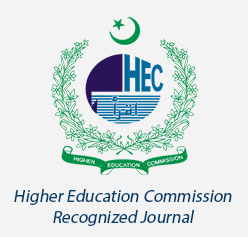Estimation of Phytochemical Composition of Guava Leaf Extracts and their Antimicrobial Activities on Different Micro-Organisms
Keywords:
Bioactive, Leaf extract, Phytochemical, Psidium guajava, Well diffusion techniqueAbstract
Aim of the proposed study to determine the antimicrobial potential of Guava (Psidium guajava) leaves. Guava leaves have been utilized traditionally as medicine. Now a day’s it is frequently used as therapeutic drugs in many countries like Asia, Egypt, Hawaii, Florida, Cuba, Puerto Rico, Colombia, Venezuela, Malaysia, Northeast India,Mexico and South Africa. Research proved that it has antimicrobial, anti-diarrheal, anti-malarial, and antioxidant activity and also used for the controlling of life changing conditions such as obesity, diabetes, hypertension etc. Guava leaves are used as therapeutic drugs in many countries all over the world. Different bioactive components are present in guava leaf that can fight against pathogens. In this study we detected four components known as Saponin, Tannin, Terpenoid and Glycosides by phytochemically then analyzed against Pseudomonas aeruginosa, Proteus vulgaris, Staphylococcus aureus and Bacillus subtilis. Leaves extract Prepared in methanol, ethanol and distilled water. MHA agar is used to check the antimicrobial activity by well-diffusion method, along with antibiotic streptomycin and gentamycine are used to compare the sensitive zone. Methnolic and ethanolic extract shows greater activity as compare to distilled water. Both gram positive and negative organism are susceptible to bioactive compounds present in guava leaves.

















